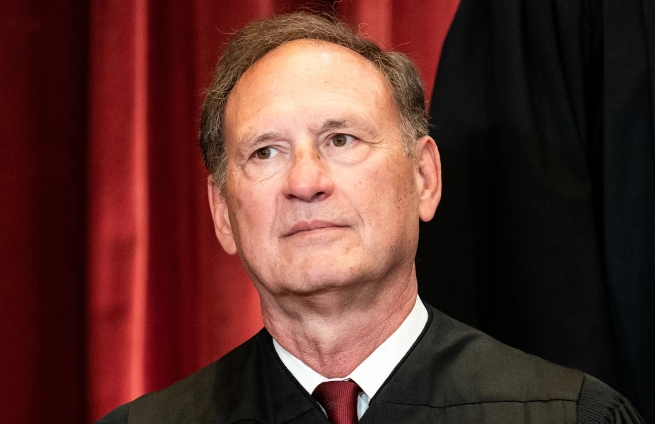Even the simple act of choosing a beverage can become a statement of personal values and beliefs. Last year’s Bud Light boycott, driven by conservative consumers outraged over the brand’s partnership with transgender influencer Dylan Mulvaney, is a prime example. The boycott saw a significant backlash against Anheuser-Busch, the parent company of Bud Light, with many Americans refusing to purchase the beer and some businesses removing it from their shelves.
Amidst the controversy, newly released financial records have revealed that Supreme Court Justice Samuel Alito made a significant financial move during the height of the boycott. Justice Alito sold his shares in Anheuser-Busch and purchased shares in Molson Coors, a rival beer company.
According to financial reports, Justice Alito sold AB InBev stock valued between $1,000 and $15,000 and purchased a similar amount of Molson Coors stock on the same day.
CNBC reported:
At the time of Alito’s stock sale, Anheuser-Busch was still grappling with a monthslong campaign to boycott Bud Light after the company partnered with transgender influencer Dylan Mulvaney in an April 2023 social media campaign.
The partnership threw the world’s largest beermaker into the center of a broader fight over transgender rights and acceptance in the U.S. — and stoked a backlash from both conservatives and supporters of Mulvaney, who was reportedly stalked and targeted with death threats amid the controversy.
In May 2023, Modelo replaced Bud Light as the top-selling beer in the U.S. Data from around that time showed sales of Bud Light had dropped nearly 25% year over year.
AB InBev nevertheless reported better-than-expected profit in the second quarter of 2023, and as of May appears to have emerged from the boycott efforts virtually unscathed.
Alito’s switch to Coors is also noteworthy in light of the company’s history of facing boycotts from Mexican-Americans, Blacks and the LGBTQ community over workplace practices.
At the time, many customers expressed their dissatisfaction with the company’s decision by calling for boycotts and sharing their views on social media. The reaction was fueled by opposition to the representation of transgender individuals in mainstream marketing. The controversy negatively impacted Bud Light’s sales.
“This sale, given the timing and much like an upside-down flag, can be construed as a political statement,” Gabe Roth, the executive director of Fix the Court, a nonprofit judicial watchdog, explained in an email to CNBC. “I believe Supreme Court justices should refrain from making political statements — even oblique ones or even ones their wife or broker may have made on their property or in their brokerage accounts, respectively,” Roth added.
Roth mentioned that he is unaware of any current cases involving the beer companies at the Supreme Court. However, he suggested that if the stock sale by Alito or his broker was a reaction to the Bud Light boycott or related cultural issues, it might reveal more about the justice’s media consumption and political leanings. “If the sale was in response to the Bud Light controversy last year, he might face an appearance-of-bias issue in future court cases concerning trans rights.”
The court is expected to soon issue a decision on whether former President Donald Trump will receive presidential immunity from criminal charges connected to his attempts to overturn his defeat to President Joe Biden in the 2020 election.
